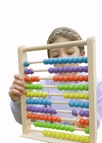Developmental Stages
Definition
Developmental stages refer to the changes (physical, social, emotional, intellectual or behavioral) in a child with age Most children become able to do more complex things as they get older.
Stages of development are often classified into age specific groups such as:
| Newborn | |
|
|
| Infant | |

|
|
| Toddler | |
|
|
| Preschool | |
|
|
| School age | |
|
|
| Adolescent | |
|
|
Social and emotional development is classified by Erickson’s eight stages of development:
1. Basic Trust Versus Basic Mistrust (1 to 2 years)  |
2. Autonomy Versus Shame (2 to 4 years) |
3. 3 to 5 years Initiative Versus Guilt (3 to 5 years) |
| 4. Industry Versus Inferiority (5 to 13 years) |
|
6. Intimacy Versus Isolation (young adult) |
7. Concern for the next generation Versus Self-Absorption (adulthood) |
| 8. Integrity Versus Despair (mature adult ) |
Cognitive development is classified by Piaget
Sensory Motor Period (0 - 24 months) |
|
| The Preoperational Period (2-7 years) | |
 Period of Concrete Operations (7-11 years) Period of Concrete Operations (7-11 years) |
|
| Period of Formal Operations (11-15 years) | |
- Children with a tracheostomy may need specialized therapies such as speech, occupational (OT), and physical (PT) to promote their developmental skills
- Children with developmental delay may progress more slowly or may not progress through the expected developmental stages
- It is important to work with the child at his own pace and developmental level
- The educational school system is a source used to promote the child’s learning and development
 Drawing
Drawing 5. Identity Versus Identity Diffusion (13 or 14 to about 20 years)
5. Identity Versus Identity Diffusion (13 or 14 to about 20 years)